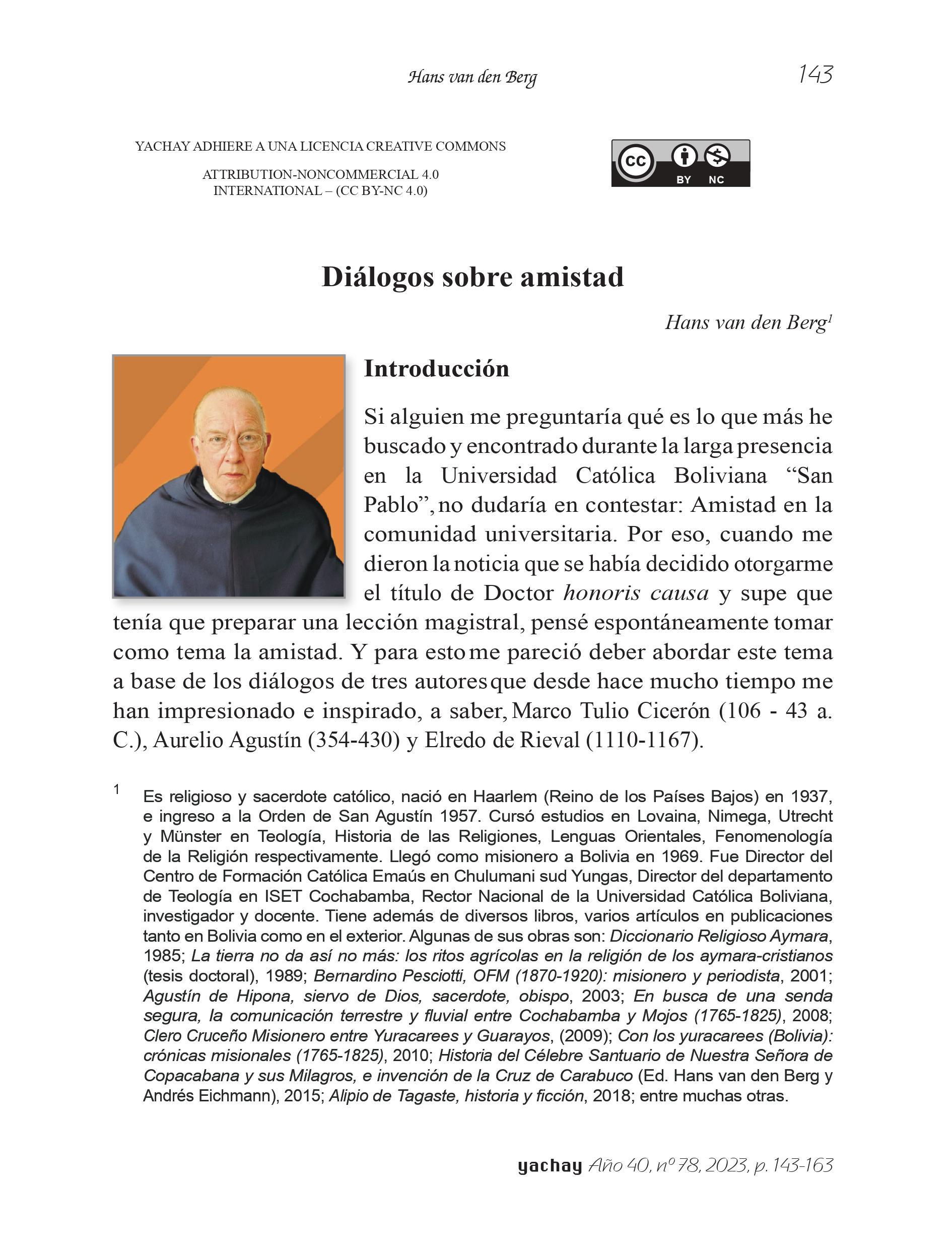Dialogues on Friendship
DOI:
https://doi.org/10.35319/yachay.202378105Keywords:
Friendship, Dialogues, Elredo of Rievaulx, CiceroAbstract
Hans van den Berg, in his keynote address on the occasion of receiving the honorary degree of Doctor honoris causa from the Faculty of Theology San Pablo, Bolivian Catholic University, on April 20, 2023, shares his reflection "Dialogues on Friendship," inspired by his own experiences of friendship in his long years of academic life at the University. He considers three key figures from the Augustinian tradition. Marcus Tullius Cicero (106-43 BC) wrote a book on friendship based on his relationship with Titus Pomponius Atticus, according to which true friendship is based on love; it is interpersonal while also having a social dimension. It is of the highest value, though rare, and it is difficult to maintain throughout life. Cicero presents some laws to care for friendship, but maturity is required. Aurelius Augustine (354-430) knew Cicero's work, and for him, friendship was an existential necessity, exemplified particularly in his relationship with Alipius of Tagaste. He elevated his understanding of friendship to the level of faith, accompanying his intimate and faithful friend in his process of conversion to Christianity. Elredo of Rievaulx (1110-1167) also knew Cicero's work but considered it inadequate because its author did not know Christ. Elredo wrote a book on spiritual friendship, which is true friendship, unlike carnal and worldly friendship. Friendship exists among the good. True friendship is attained through four steps. Van den Berg concludes that, among true friends, the countenance of one is reflected in the other.
Downloads
References
Aelredus Rievallensis, De amicitia, http://thelatinlibrary.com/aelredus.html.
Agustín, Cartas (1o) 1-123 (Madrid: Biblioteca de Autores Cristianos, 1986).
Agustín. Cartas (3o) 188-270 (Madrid: Biblioteca de AutoresCristianos, 1991).
Agustín. Confesiones. Madrid: Biblioteca de Autores Cristianos, 2013.
Agustín. «Contra los Académicos». En Obras completas III, 71-190. Madrid: Biblioteca de Autores Cristianos, 2009.
Cicerón, Marco Tulio. La amistad [bilingüe]. La Paz: Librería Editorial “G.U.M.”, 2008.
Elredo. La amistad espiritual. En: http://autorescatolicos.org/misc02/alejandroferreiros01.pdf

Published
How to Cite
Issue
Section
License
Copyright (c) 2023 Yachay

This work is licensed under a Creative Commons Attribution-NonCommercial 4.0 International License.
De acuerdo a la Ley 1322 de Derechos de Autor en Bolivia, la Revista YACHAY respeta los derechos morales de los autores, amparando la parternidad e integridad de sus obras publicadas.




